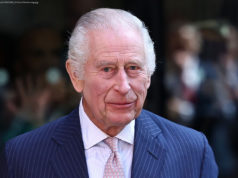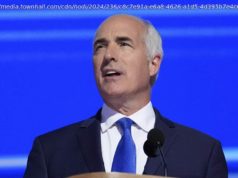American presidents have sought to have their words match the moment, especially in moments of crisis, of war and terror. Except for President Donald Trump.
WASHINGTON (AP) — In moments of crisis, of war and terror, of loss and mourning, American leaders have sought to utter words to match the moment in hope that the power of oratory can bring order to chaos and despair. Lincoln at Gettysburg. Franklin Roosevelt during the Depression and World War II. Reagan after the Challenger disaster. Bill Clinton after the Oklahoma City bombing. George W. Bush with a bullhorn at Ground Zero in 2001 and Barack Obama after the slaughter of congregants at a South Carolina church. Each time, the speakers, Republican and Democrat, extemporaneously or with a script, managed to sound notes that brought at least a temporary sense of national unity and purpose. “I really think there is something at the very core of our humanity that only words can satisfy,” said Wayne Fields, author of “Union of Words: A History of Presidential Eloquence,” and a professor at Washington University in St. Louis. “Almost as much as our need to be touched in the most desperate of circumstances is our need to be spoken to. Public despair in particular has to be literally addressed, I think, if it is to be overcome, must be articulated and then transcended.” In the aftermath of a violent insurrection at the U.S. Capitol, a cathedral of democracy, President Donald Trump did not meet that prescription. He scaled the walls of false equivalency and descended into the canyons of conspiracy. He stirred the riotous mob with his “fight like hell” speech before his supporters marched to the Capitol, then delivered a tepid appeal for nonviolence, telling his supporters he loved them. This came well after the man voters chose to succeed him, President-elect Joe Biden, had summoned outrage, empathy and a sense of a path forward. Trump has never been much for the big speech. Those he has given, like his Oval Office address about the pandemic in March, contained more than one large error. His preferred medium was Twitter, where his 280-characters-at-a-time rhetoric was a study in hortatory rather than oratory. And by Friday, Twitter had shut down his account permanently. The oratory of crisis typically consists of either a formal statement or an extemporaneous speech.






